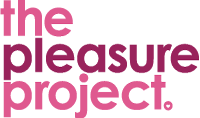Sexual Pleasure In Times of COVID-19
World Sexual Health Day 2020
Around the world since 2010 each year on September the 4th World Sexual Health Day is celebrated @SexualHealthday @DiaSaludSexual. In the state of Jalisco, Mexico, World Sexual Health Day has become an official day in the state calendar, as well as in the province of Chaco in Argentina. In other parts of the world communities and organisations celebrate the importance of sexual health, and how key it is to well-being, health and a population’s thriving. WAS is hosting a webinar on September 4 featuring experts in the sexual health and pleasure field, this is accompanied by a day packed full of pleasure-inclusive sexual health information.
This year the plan was always to celebrate the importance of pleasure for sexual health, in the wake of the World Association of Sexual Health’s brilliant declaration on pleasure. This will be ratified at next year’s congress in South Africa – and it follows on from the Declaration of Sexual Rights to ensure that pleasure is firmly within definitions of sexual health, part of sex education and integral to sexual health programmes. More and more organisations from the World Health Organisation, the Guttmacher – Lancet Commission and to the International Planned Parenthood Federation are recognising that pleasure is key to sexual health, and a more effective way to promote it.

The COVID-19 pandemic has presented us globally with an unprecedented challenge and tragedy. It has also massively impacted on women’s ability to seek reproductive health care. However, it has also highlighted an opportunity to be honest about what we need and want from our sex lives. The media has been full of stories about how sex toy sales have skyrocketed during lockdown; for some companies’, sales were up 200% during early lockdown. Masturbation has become a little less taboo as the mainstream press and national health agencies hail it as the safest sex there is and good for boosting our immune system.

As we start to reflect on what we would like in our post-COVID world, we should focus on ‘building back better’, with a vision for what we want from our sex lives – and what we want to promote. We should centre a societal vision on population well-being, joy and happiness – and sexual health programmes that recognise that sex is good for you when done well. It can enhance our lives, relationships and general health. Countries or development projects that use well-being measures to influence national policy are limited, and health projects that aim and measure women’s pleasure is non-existent.
Safe sex can be sexy. Putting on a condom could be like squeezing into your favourite sexy boots or latex dress, ready for action. Telling your lover what you want could be foreplay. Sex education could include creative masturbation techniques
Sexual pleasure remains a highly significant, if not primary, motivating factor for sexual behaviour. Yet sex negative cultures uphold social control of pleasure and sexuality, and traditional power dynamics. While it’s important to discuss distorting images of sex, consent, and abuse, society’s focus only on saying ‘no’ leaves little room to highlight how we can learn to say yes to good, safe sex. Sex that fulfills us, makes us happy, satisfies us and bonds us to others. Recognising that we can create new types of safe, pleasurable sex, in which multi-faceted desires are recognized, should give us confidence that other forms of liberation are possible.
So how do we transform ourselves, creating more meaningful, good, safer sex lives? Sexual liberation is not only about more sex for some people, or more orgasms, but should prioritize pleasure, consent, and respect for a wide range of sexualities, (dis)abilities and body types.
Getting in touch with what we want from our sex lives and being honest about it during these unprecedented times might unearth much broader visions of liberation, the kind that moves beyond the individual to recognise collective visions of change. Now is the moment.

